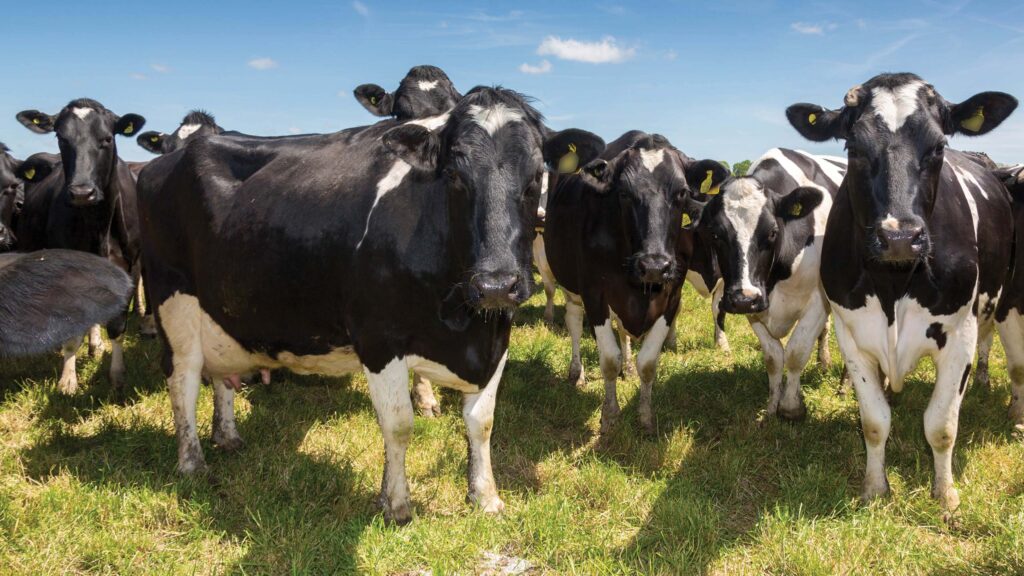‘Lucky escape’ as government shelves COP30 methane pledge
 © Tim Scrivener
© Tim Scrivener The government has quietly shelved proposals to announce a UK-specific pledge at the COP30 climate summit to cut methane emissions from livestock by 30% by 2030, Farmers Weekly can reveal.
Andrew Loftus, chairman of the Beef and Lamb Environment Roadmap, a cross-sector group supporting the industry’s steps towards net zero, said the move would have been a “disaster” without a change to the way emissions are measured, and would likely have required a 30% cut in total ruminant numbers.
See also: Bovaer maker defends product after Danish farmer fears
The plan would have built on a commitment made by the UK in 2022 – which still stands – to work with other countries to reduce global methane emissions by 30% in the same timeframe.
Both Mr Loftus and Paul Tompkins, chairman of the NFU dairy board, said they had been made aware of the proposals, with Mr Tompkins saying the government had “given every indication” that it would press ahead.
But the Department for Energy Security and Net Zero told Farmers Weekly this week there were no plans for any methane announcements at COP30 in Brazil later this month.
“This is a lucky escape, for the time being,” said Mr Loftus.
“We need to keep a very close eye on this. Defra has been taken to court twice under the climate change acts and will be looking for ways to avoid this happening again.
“Cutting livestock numbers is a crude and counterproductive solution, but one many campaigners are pushing for.”
The ditching of the plan comes shortly after New Zealand reduced its national target to cut methane emissions by 2050 on the basis that it was being incorrectly measured.
Because of its short lifespan of 12 years, methane warms the planet differently from long-lived gases such as carbon dioxide, so current metrics overstate its impact on climate change.
Farming groups are hoping that the precedent set by New Zealand will push the UK government to take a similar “split-gas” approach to measuring emissions.
Mr Loftus said the Climate Change Committee (CCC), which advises the UK government, had made some progress in this area and used this metric in its latest carbon budget.
But he warned the CCC could not make the “bold” decision to move to this approach without political support, and that was lacking.
“The environmental lobby, the non-governmental organisations, have significant influence in Defra and over Labour ministers, and they are not for moving,” he said.
“They are wedded to the idea that we must reduce livestock numbers, in some cases very significantly.”
Mr Tompkins pointed out that the international reporting mechanisms for greenhouse gas emissions were never designed to influence policy in the way they do.
“The focus on methane remains, but this does give us room to discuss warming metrics and means of reduction,” he said.
“I think this is a holding pattern we need to use to get our own initiatives into play.”
He suggested these initiatives should include improved genetics, improved feed conversion and utilising grass, which all improve farm efficiency as well as reducing methane emissions.
UK farm leaders join global call for fairer methane accounting
Farm organisations from 14 countries, including the UK, Ireland, New Zealand, the US and Australia, have united to urge the UN to adopt a split-gas approach to measuring greenhouse gas emissions.
UK signatories to a joint statement calling for the change include the NFU, the National Sheep Association, Quality Meat Scotland and the British Meat Processors Association.
The statement says the standard GWP100 metric used by the UN Framework Convention on Climate Change treats methane the same as long-lived gases such as carbon dioxide and nitrous oxide, even though methane breaks down in only about 12 years and behaves differently in the atmosphere.
“Using a single carbon dioxide equivalent figure distorts the science and unfairly penalises livestock farmers,” the statement adds.
“A split-gas approach would reflect reality and support more effective climate policies without undermining food security.”
Farming groups claim the switch would give a fairer picture of agriculture’s true contribution to climate change and help avoid policies that simply target livestock numbers.
Uruguay has already adopted this method in its national targets, and the UK signatories want the Westminster government to follow suit.
